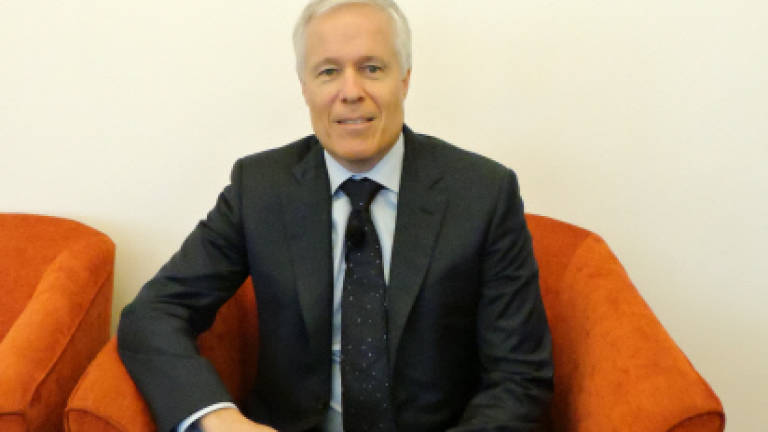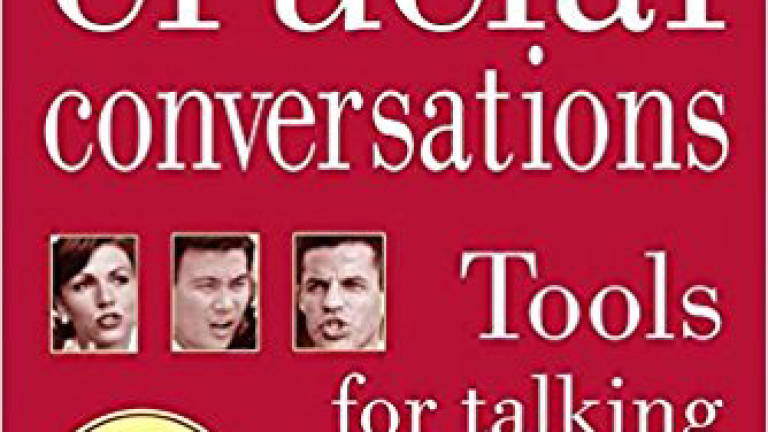Perfecting the art of talking



JOSEPH Grenny is the author of four New York Times bestselling books on leadership, business, and human behaviour.
His first book, Crucial Conversations, sold over three million copies. The book essentially teaches readers how to hold effective conversations in highly-stressed situations when they have to deal with varying opinions and high emotions.
His other books are Crucial Accountability, Influencer and Change Anything.
Grenny’s work has been translated into 28 languages, is available in 36 countries, and has generated results for 300 of the Fortune 500.
This popular public speaker was in Kuala Lumpur recently for a talk, The Great Generational Divide, organised by CrucialSkills Leadership Centre.
The talk teaches people how to bridge the gap between generations in organisations. The generations referred to in this talk are the Baby Boomers (from 49 to 67 years old) and the Millennials (13 to 33 years old).
In an email interview, Grenny (below) answered questions about his books, and also shared his opinions about the great generational divide.
Based on your talk and your more recent conversations, do you think the art of communication is something people have to learn as opposed to something we are born with?
“No one is born with it. Some of us have better models early on than others. However, none of us is ‘too good’ at it. We all need to practise and learn.”
Why is there a generational divide when it comes to workplace conversation or any conversation in general?
“Younger people today have grown up with technology that inhibits our practice of face-to-face communication.
“All of us get lazy at times and attempt to hold crucial conversations via email, text, or even leaving a voicemail – when we know we shouldn’t. But younger people are a bit more tempted than us older folks.”
Do you think that social media has a big role to play in how we communicate now?
“My primary study is not communication in general but crucial conversations – conversations where the emotional stakes are high.
“Social media tends to escalate these kinds of conversations when people attempt to use it. It even incites more emotion where it was not necessary by putting distance between us, making it impossible to monitor the emotional content of the conversation the way we can when we do it in person.”
Do you think that due to ‘political correctness’, people would rather say nothing for fear of being misunderstood?
“Certainly, social norms powerfully affect whether or not we choose to speak up. But they can also become convenient excuses.
“Crucial conversations always involve risk and if we can claim to be supporting a social norm through our silence, it takes us off the hook.”
Are we becoming more sensitive or are people becoming aware that insults and demeaning comments are just not acceptable?
“Certainly, norms are changing. Power is becoming more democratised. So we are appropriately required these days to consider the impact of our words on others independent of gender, politics, social status. This is a positive trend.”
Are you working on another book right now? If so, what it is about?
“I am thinking a lot about pivotal moments of personal change. I am working with a group of people who have deeply damaged lives and what watching remarkable shifts happen in the way they see themselves and the way they behave.
“I want to understand that more deeply in hopes of helping more people experience this kind of positive improvement.”